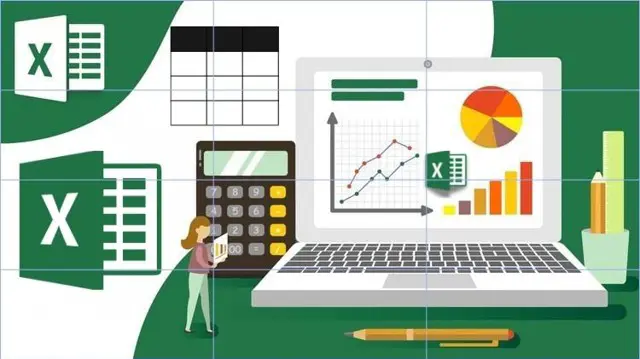
Microsoft Excel for Beginners: Basics, Functions & Formulas
Learn all Basics of MS Excel. Expertise your MS Excel Functions & Formulas that Boosts Your Confidence
Swarna Institute of Technology
Summary
- Reed Courses Certificate of Completion - Free
- Tutor is available to students
Add to basket or enquire
Overview
Microsoft Excel: Learn Complete Basics, Functions & Formulas...
In this course you will learn all Basics of MS Excel.
Expertise your MS Excel Functions & Formulas that Boosts Your Confidence.
The key points you learn from this course are...
- Building a strong understanding on the Basics of Microsoft Excel.
- Learn ADD, FILL, SPLIT, TRANSPOSE, SORT & FILTER, TABLES, DROP-DOWNS, ANALYZE, CHARTS and PIVOTE TABLES.
- Learn multiple methods of basic arithmetic functions like addition, subtractions, multiplications, divisions ect.
- Introduction to Functions, Average, Min & Max, Date and Time and Joining Text & Numbers.
- Learn IF Statements, VLOOKUP, Conditional Function, Function Wizard and Formula Errors.
- Learn Power Query, Pie Charts and Organization Chart from the Data.
Curriculum
Course media
Description
Microsoft Excel: Learn Complete Basics, Functions & Formulas...
Learn all Basics of MS Excel. Expertise your MS Excel Functions & Formulas that Boosts Your Confidence.
Microsoft Office Excel provides powerful tools and features that you can use to analyze, share, and manage your data with ease. The user interface makes it easy for you to work in Microsoft Office Excel. Commands and features that were often buried in complex menus and toolbars are now easier to find on task-oriented tabs that contain logical groups of commands and features. Many dialog boxes are replaced with drop-down galleries that display the available options, and descriptive tooltips or sample previews are provided to help you choose the right option. No matter what activity you are performing in the new user interface—whether it's formatting or analyzing data—Excel presents the tools that are most useful to successfully complete that task.
Who is this course for?
This course is for...
- For Beginners or Intermediates in any stream of the education are eligible to learn.
- This course is mainly helps to those who are working in Banking or Banking sectors.
- School students, College students and all professionals can learn this course and make work life easy.
Requirements
The requirements are...
- No prior knowledge of an excel is required, but must know bit about computer typing.
- MS Office of any version is installed in your system or PC.
Career path
Many roles require Excel skills, such as financial analyst, data analyst, business analyst, project manager, and administrative positions. Demonstrating your expertise in Excel through certifications or relevant experience can significantly increase your chances of securing a job.
Questions and answers
Currently there are no Q&As for this course. Be the first to ask a question.
Certificates
Reed Courses Certificate of Completion
Digital certificate - Included
Will be downloadable when all lectures have been completed.
Reviews
Currently there are no reviews for this course. Be the first to leave a review.
Legal information
This course is advertised on reed.co.uk by the Course Provider, whose terms and conditions apply. Purchases are made directly from the Course Provider, and as such, content and materials are supplied by the Course Provider directly. Reed is acting as agent and not reseller in relation to this course. Reed's only responsibility is to facilitate your payment for the course. It is your responsibility to review and agree to the Course Provider's terms and conditions and satisfy yourself as to the suitability of the course you intend to purchase. Reed will not have any responsibility for the content of the course and/or associated materials.


